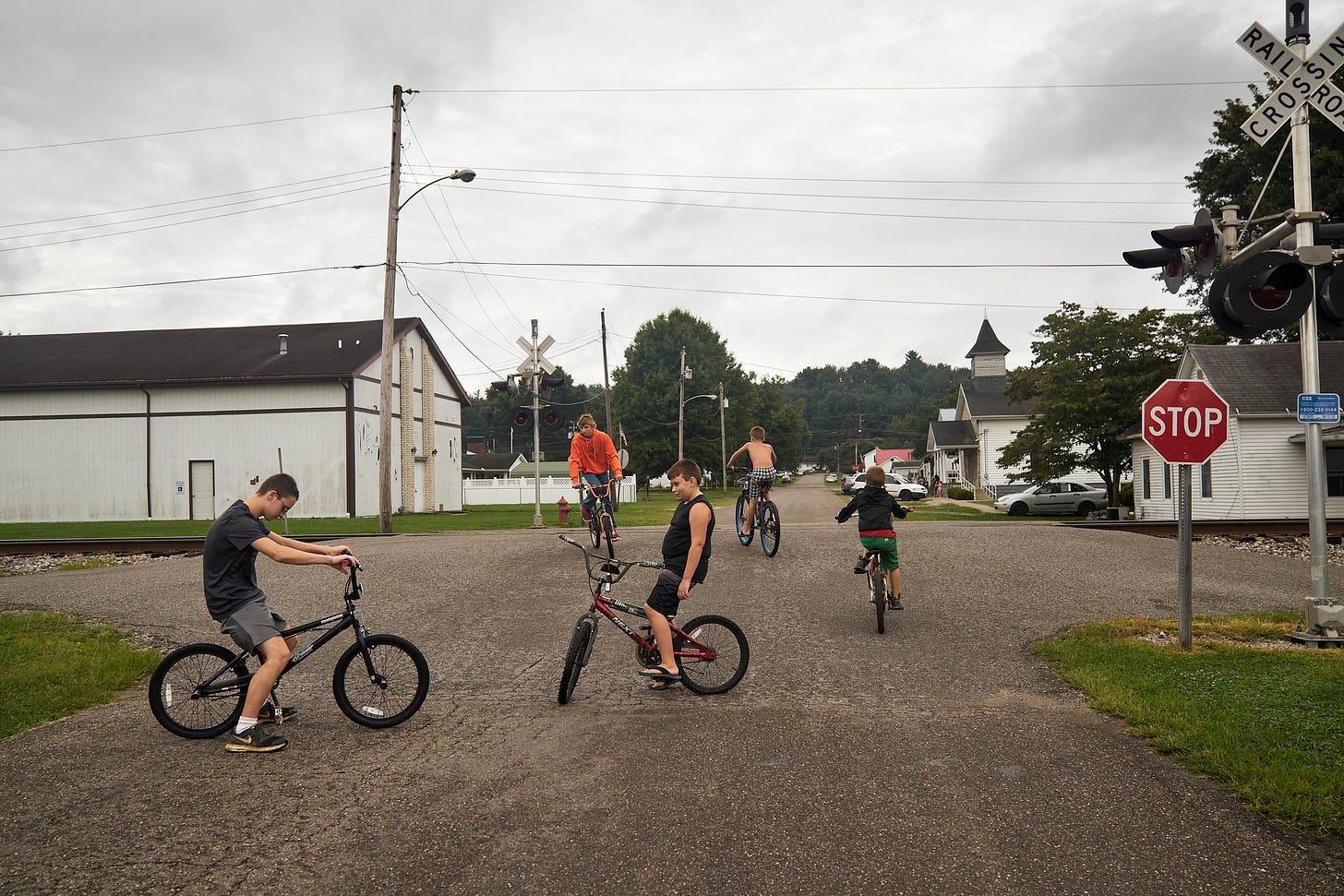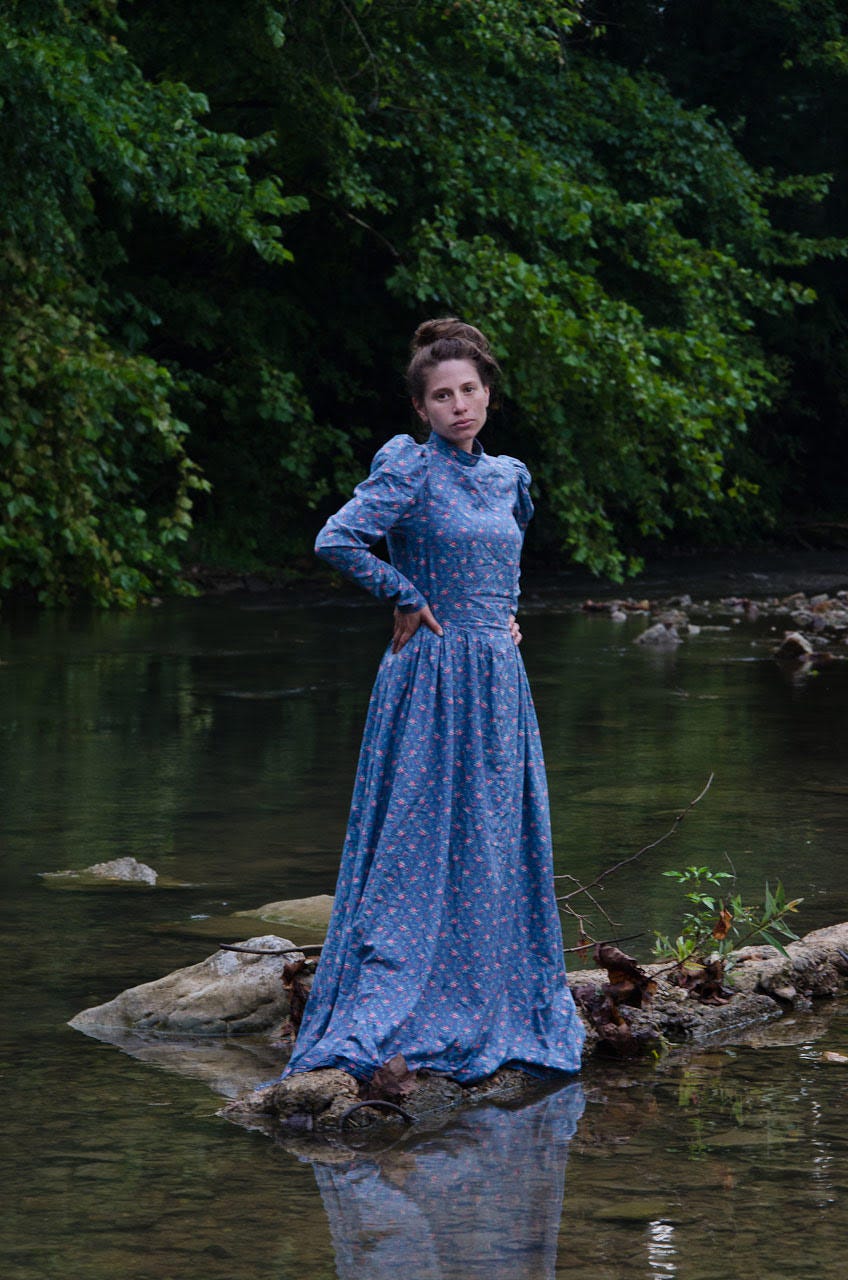Artists working in Kentucky among 2020 Guggenheim Fellows
Poet Ada Limón, Photographer Stacy Krantiz awarded at an unstable time for artists
By Elizabeth Kramer
Poet Ada Limón of Lexington and Frankfort-born Stacy Krantiz, a photographer who focuses her art on Appalachia and lives in Tennessee not far from the Kentucky border, are among the 175 artists, writers, scholars and scientists across the country awarded 2020 Guggenheim Fellowships, The John Simon Guggenheim Memorial Foundation announced last Thursday.

Stacy Kravitiz’s “Mason, West Virginia” from the series Appalachia.
Limón said she cried with gratitude on and off for hours after she was alerted last Wednesday. The poet has written several books including the National Book Award and National Books Critics Circle Award finalist “Bright Dead Things” (2015) followed by last year’s “The Carrying.” That book won the 2018 National Book Critics Circle Award for Poetry.
“I still kind of feel a heaviness in my chest because I know how many people are in need, and this feels like this great gift,” said Limón, adding that this was the thirteenth time she had applied.
Krantiz, who makes her home in Smithville, Tennessee, said the fellowship will provide stability but “feels strange” to receive at a time when the COVID-19 virus pandemic is creating hardships for artists.

Ada Limón. Photo by Lucas Marquardt.
Both artists have already begun working on their proposed projects.
Limón’s new work focuses on revival and resurrection.
“It’s about things that come back after a great loss — which is really fascinating that this proposal was written before all of this,” she said. “It is about hope and what comes back.”
Limón, whose poetry has appeared in The New Yorker, Harvard Review and Pleiades, said she defined her project after reading a lot of work she described as “very mired in the well of pity and grief and almost a hard surrender to a kind of terrible existence.”
She has given herself a deadline of a year to finish her new project, which she said builds on her past work. Her last collection of poems dealt with her struggles to conceive a child.
“This proposal is focusing on what it is to not give up,” she said.
At the beginning of this month and in the midst of the pandemic, Limón began writing on this project, even though, she said, it has been difficult. Because of the current situation, she finds that it is taking shape in a different way than she had originally envisioned.

Ada Limón’s most recent book of poems, “The Carrying.”
“I do think we need some kind of leaning toward the light,” she said. “We need it to just get through this time — even if our basic, basic goal is just to come out the other end alive.”
Limón and Krantiz are among the 60 Guggenheim Fellows, according to the foundation, who have no affiliation with a college or university. Krantiz called the award “extra special” for artists working outside those institutions.
Krantiz’s photography has largely focused on marginalized communities, particularly those of Appalachia, where she has said simplistic and superficial images created by photographers have been used for decades to illustrate the region since the declaration of the War on Poverty in the mid-1960s. Her own work — both her portraits and landscapes — resonates with an honesty that can be sometimes sweet and other times harsh as it reveals landscapes and people affected by coal mining and poverty. In late 2020, Twin Palms is publishing a monograph of her work.
“It’s sort of a reckoning with a relationship with poverty and shame and the role that photography has played in that,” she said.

Portrait of Stacy Kranitz by Benjy Russell.
Krantiz’s Guggenheim Fellowship project focuses on the life and work of Kentucky lawyer, legislator and author Harry Caudill, who was born and lived in Whitesburg and wrote the 1963 book “Night Comes to the Cumberlands.” Caudill’s illustration in it of how businesses exploited Appalachian people and the natural resources and fostered poverty prompted reporters to visit the region and captured the attention of President John F. Kennedy.
Krantiz, who said she has long been “obsessed” with Caidill’s story, has researched his life in Letcher County and in his papers at the Special Collections Library at the University of Kentucky, where he taught Appalachian Studies.
“I just became really seduced by the arc of his thinking and how he lived his life so deeply engaged in the struggle of Appalachians,” she said.
His thinking, she added, “takes you on some incredible journeys.”
Krantiz also has researched his later interest in eugenics, which made his life more interesting to her.
“His ideas became a little backward, and that is what this particular body of work is about,” she said. “I find that our heroes are not perfect. They’re actually most often deeply flawed.”
She has already begun working on this project, photographing a section of the Cumberland Mountains where Caudill shot himself in 1990 after learning he had Parkinson’s disease and died at age 68.
“I’ve spent a lot of time photographing that mountain and just thinking about how brave and complicated that decision was,” she said.
Given the contentious and dark nature of her project, Krantiz said she was “really taken aback that the Guggenheim Foundation was so responsive to it.”
Her finished work from this project will be published in a book by London’s Here Press. She intends to exhibit the finished work in a year or two at a gallery in Kentucky.


